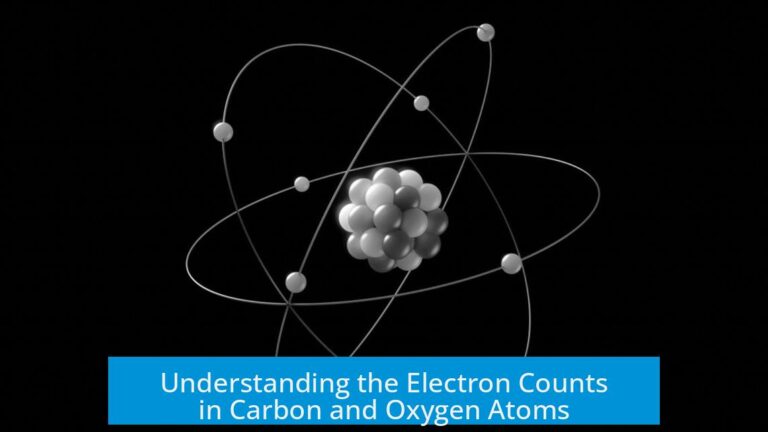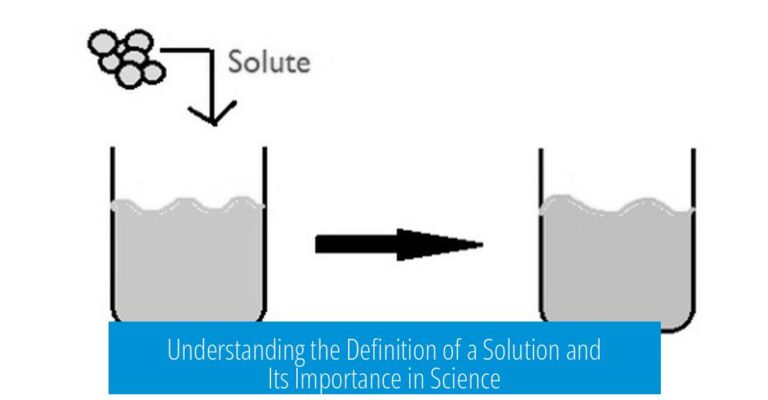People with a Degree in Chemistry: What Is Your Career?

Individuals holding a chemistry degree work across diverse sectors including pharmaceuticals, environmental testing, academia, regulatory affairs, and emerging industries. Analytical, R&D, QC/QA roles dominate, but many also branch into teaching, sales, software development, or patent law. Careers vary widely in responsibilities, compensation, and work environment.
Core Career Paths for Chemistry Graduates
Analytical Chemistry Roles
Many with chemistry degrees enter analytical chemistry, applying skills in testing, quality control, and method development. Positions exist in pharmaceutical companies, environmental labs, and chemical manufacturers.
- Biopharmaceutical Analytical Chemist: Tasks include sample analysis and method validation. Work can be repetitive and mentally demanding but rewarding due to its impact.
- Pharmaceutical R&D Chemist: Focus on developing analytical methods for novel drug substances. Attention to detail is crucial; workload can involve tight deadlines.
- Environmental/Materials Testing Chemist: Uses techniques like X-ray diffraction and gas chromatography to analyze samples. Work may include routine and specialized testing.
- Industrial Chemical Manufacturer Chemist: Involves chromatography and R&D functions in manufacturing settings, often needing adaptability to various lab tasks.
Analytical chemists often engage in routine laboratory work, yet also solve complex problems involving chemical interactions. Pay and work conditions vary widely by employer and region.
Research & Development (R&D) Chemistry Roles
R&D chemists perform synthesis, characterization, and problem-solving in diverse chemical fields. They may specialize in organic synthesis, materials chemistry, or drug discovery.
- Materials Chemistry R&D: Involves organic synthesis and use of advanced instruments like Nuclear Magnetic Resonance (NMR). Handling hazardous chemicals is common.
- Pharmaceutical Synthetic Organic Chemist: Work includes drug synthesis under demanding schedules with exposure to chemicals and mental stress.
- Drug Discovery Scientist: In major pharmaceutical companies, roles require extensive knowledge in chemistry, biology, and medicine. They offer high salaries and impactful outcomes but face long project timelines.
R&D roles often mean longer hours and high pressure but provide opportunities to innovate and make scientific advances.
Quality Control (QC) and Quality Assurance (QA) Roles
QC/QA chemists focus on product testing, compliance, and consistency. These roles often involve routine analyses but are essential for regulatory compliance and consumer safety.
- GMP QC Scientist: Works in pharmaceutical environments with structured hours and steady pay. Repetitive tasks are common but provide job stability.
- QC Lab Technician: Entry-level role with modest salary ceiling; networking is critical for career progression.
- Environmental QA: Involves ensuring accuracy of environmental data, sometimes with hazardous and labor-intensive conditions.
- Lab Manager: Oversees operations in QC labs or hazardous waste processing, managing technicians and ensuring safety compliance.
QC/QA careers appeal to those seeking work-life balance and steady routines but may lack variety and high scientific challenge.
Teaching and Academic Careers
Chemistry graduates often teach at high schools, colleges, or universities. Academic roles may include research, lab management, or curriculum development.
- Chemistry Teacher: Combines passion for science with education. Requires significant effort but offers rewarding experiences and flexible schedules.
- University Professor: Balances teaching and research, usually at liberal arts colleges. Pay may be low relative to industry.
- Lab Manager: Manages university student labs, focusing on safety and training. Limited salary growth but gratifying impact on student learning.
- Postdoctoral Researcher: Engages in specialized research. Often involves moving internationally and long hours.
Academic careers emphasize education and scientific inquiry but can involve lower pay and uncertain job security.
Alternative Careers Leveraging Chemistry Degrees
Field Service Engineers and Technical Support
Chemistry graduates sometimes become specialists maintaining scientific instruments such as chromatographs and titrators. This role mixes technical skills with customer service.
Regulatory Affairs Specialists
Professionals in this field manage drug approvals and compliance with regulatory agencies like the FDA and EMA. Chemistry expertise is vital in preparing comprehensive drug dossiers.
Patent Law and Intellectual Property
Patent attorneys with chemistry backgrounds apply scientific understanding to secure intellectual property rights. This combines legal and chemical expertise and typically requires additional qualifications.
Software Engineering and Data Science
Some chemists transition into software development or data science, especially related to laboratory informatics or chemical data analysis. This shift leverages analytical and quantitative skills.
Technical Sales and Business Development
Chemistry knowledge supports sales roles advising on catalysts, surfactants, or specialty chemicals. These positions often involve travel and client interaction.
Environmental Chemistry and Water Treatment
Careers include overseeing wastewater treatment, environmental monitoring, and laboratory analysis of water quality. These jobs provide a blend of fieldwork and lab science.
Emerging Industries: Cannabis and Tutoring
Chemists contribute to cannabis product extraction and quality testing. Additionally, private chemistry tutors can earn high hourly rates, possibly exceeding industry salaries.
Common Challenges in Chemistry Careers
Job Market Variability
Graduates may experience difficulties finding roles aligned with their degrees. Flexibility and willingness to work in less popular locations can help secure positions. Networking proves crucial.
Pay and Work-Life Balance
Pharmaceutical and R&D roles often pay well but involve high stress and long hours. QC jobs offer steadier schedules but lower salaries. Academic salaries generally lag behind industry.
Work Stress and Physical Demands
Many positions require repetitive tasks, exposure to hazardous substances, and mental endurance. Physical lifting and lab safety are common concerns.
Skill Development and Career Growth
Success requires learning diverse techniques, self-marketing, and professional adaptability. Taking on varied roles broadens expertise and increases employability.
Summary Table of Chemistry Careers
| Career Role | Description / Notes |
|---|---|
| Analytical Chemist | Method development, sample testing for pharma, environment, preservatives |
| R&D Chemist | Organic synthesis, materials chemistry, drug discovery |
| Quality Control/Assurance | Routine product testing, regulatory compliance |
| Academic Roles | Teaching, research, lab management |
| Field Service Engineer | Maintains and repairs analytical instruments |
| Regulatory Affairs Specialist | Drug dossier preparation, liaison with regulatory agencies |
| Patent Attorney | Intellectual property expertise with chemistry background |
| Software Engineer/Data Scientist | Transition from chemistry to programming, lab software |
| Technical Sales | Advises customers on chemical products, frequent client interaction |
| Environmental Chemist | Water treatment, environmental sample analysis |
| Cannabis Industry Chemist | Product extraction, senior chemistry roles |
| Tutor | Private tutoring with lucrative rates |
Insights and Advice from Chemistry Professionals
- The field offers more job variety than anticipated, spanning sectors like food, cosmetics, recreational drugs.
- QC roles reward diligence and provide stable employment without needing to be top scientists.
- Embracing failed experiments is key for success in R&D.
- A chemistry degree does not limit one to lab work; many alternate careers exist.
- Flexibility and strategic volunteering improve career progression.
- Mastering self-promotion and interview skills can enhance job prospects.
- Changing jobs wisely can significantly raise salaries.
Pros and Cons of Careers in Chemistry
| Pros | Cons |
|---|---|
| Enjoyment of work and coworkers | Repetitive or monotonous tasks |
| Making meaningful contributions in health, environment | Mental, physical, emotional stress |
| Continuous learning and problem-solving | Chemical exposure hazards |
| Competitive pay in pharma and research sectors | Corporate politics and low autonomy |
| Work-life balance in some QC and academic roles | Job insecurity, especially for new graduates |
| Ability to switch into related fields like software, sales | Lower pay outside specialized industries |
Key Takeaways
- Chemistry degrees open varied career paths including lab science, teaching, regulatory, and new industry roles.
- Analytical, R&D, and QC roles are common but differ in workload, pay, and stress.
- Alternative careers such as patent law, software development, sales, and environmental chemistry suit different interests.
- Flexibility, networking, and continuous skill growth are critical for career advancement.
- Common challenges include repetitive tasks, hazardous exposure, and finding initial job placements.
- People with chemistry degrees often find fulfilling roles impacting health, environment, and technology.
What types of analytical chemistry jobs can a chemistry graduate expect?
Chemistry graduates work in biopharmaceuticals, environmental labs, industrial manufacturing, and preservative companies. Roles include sample analysis, chromatographic techniques, and method development.
How does working in R&D chemistry differ from other chemistry careers?
R&D chemists focus on developing new materials and synthesizing compounds. They handle organic synthesis, characterization tools, and problem-solving but may face chemical hazards and longer hours.
Are there quality control roles suitable for chemistry graduates?
Yes. QC roles exist in pharma, environmental, and industrial sectors. Tasks include product testing, ensuring compliance, and managing lab teams. Pay and workload vary by industry.
What career options are available for chemistry graduates interested in teaching or academia?
Graduates can become teachers, university professors, lab managers, or researchers. Academic jobs offer rewarding work but often come with lower pay and require higher degrees.
What are some alternative careers linked to a chemistry degree?
Options include field service engineering for analytical instruments and regulatory affairs specialist roles. These jobs combine chemistry knowledge with technical support or compliance expertise.





Leave a Comment